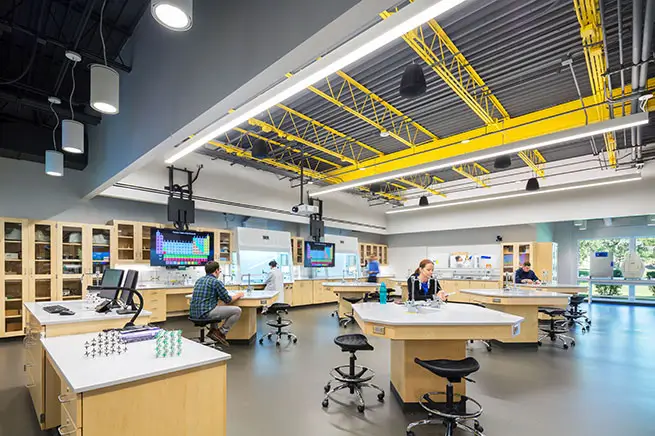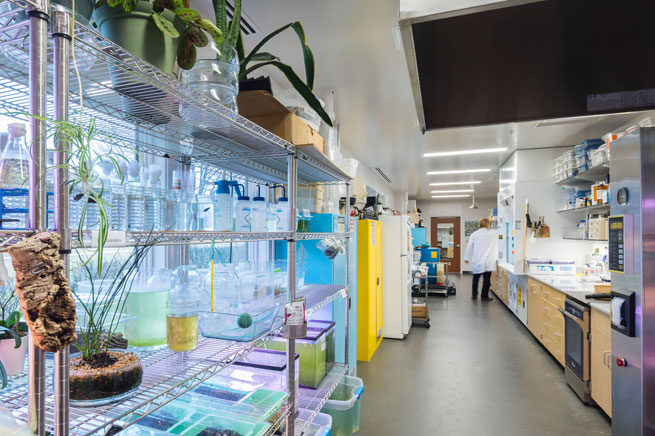Science Lab
The Science Lab is located on the main Bellevue University campus in the R. Joe Dennis Learning Center. (See area map).

Making Science Accessible
Bellevue University students have access to a new multi-million dollar science lab well-equipped for hands-on research. The new lab offers capabilities that strengthen STEM education for students in Nebraska. The lab puts the student at the center of the learning experience with opportunities to interact face-to-face and virtually with other students.
“ Science is not a scary thing. It's something that we have fun with and you can come join us. ”
Lab Equipped with DNA Sequencer and Advanced Photometers
New equipment makes this one of the most technologically advanced small labs in Nebraska:
- Spectrophotometers -- an instrument that measures the amount of photons (the intensity of light) absorbed after it passes through sample solution.
- Compound microscopes -- a microscope that uses a lens close to the object being viewed to collect light (called the objective lens), which focuses a real image of the object inside the microscope. That image is then magnified by a second lens or group of lenses (called the eyepiece) that gives the viewer an enlarged, inverted virtual image of the object.
- DNA sequencer -- used to determine the order of the four bases: G (guanine), C (cytosine), A (adenine) and T (thymine). This is then reported as a text string, called a read. Some DNA sequencers can be also considered optical instruments as they analyze light signals originating from fluorochromes attached to nucleotides.

Collaborative Learning Technology
In addition to the new science equipment, each of the labs is outfitted with technology to enhance collaboration and the learning experience:
- Each of the classrooms has a standard projector and each lab has four drop-down monitors.
- Each station is integrated with its own computer with Apple TV - allowing a student to take an image off the microscope and put it on the TV to share with the entire class.
For more information contact: Dr. John Kyndt, or Dr. Scott Pinkerton.









